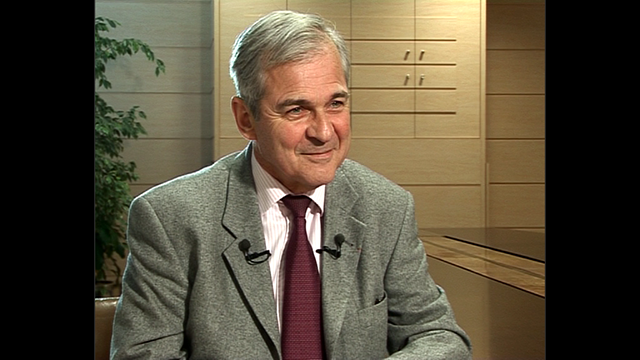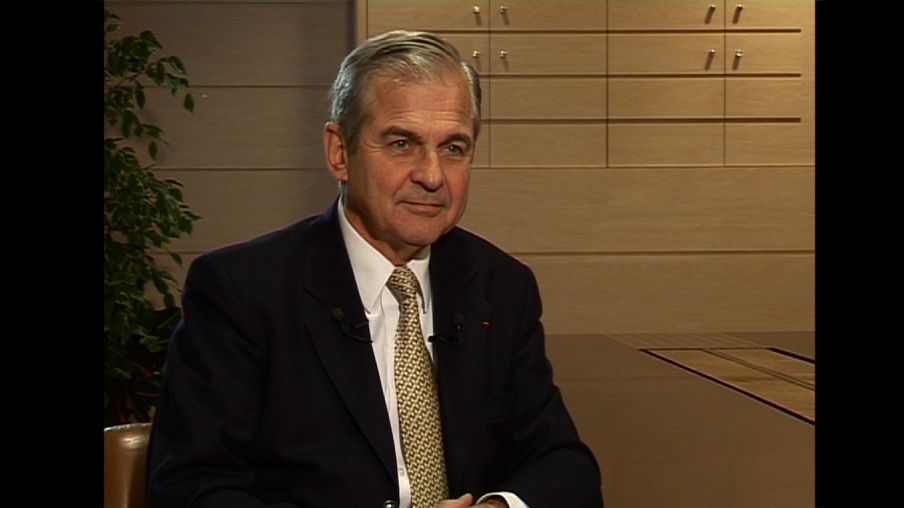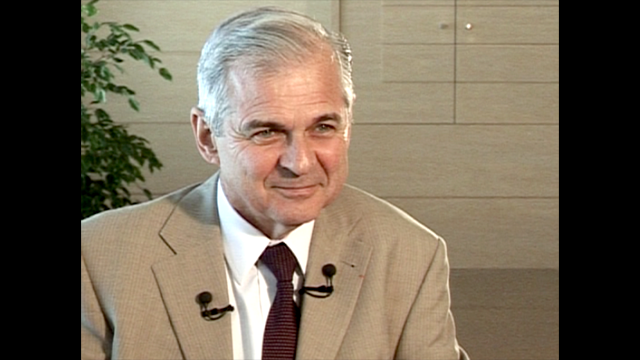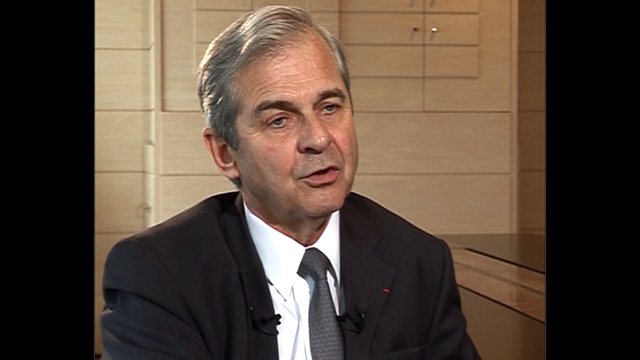EuroBusiness Media (EBM): Technip, one of the world's leading oil services companies, has reported first half earnings. And with us today is Chairman and CEO, Daniel Valot. Monsieur Valot, thank you very much for being with us. Technip reported today an increase of better than 15% in earnings per share -- that was on flat revenues. Can you comment on this, and tell us what else we should be looking for in these numbers?
Daniel Valot (DV): That comes basically from the fact that we achieved an improvement in our operating margins by about 50 basis points, compared to first-half 2004, so it's exactly in line with what we had in mind at the beginning of this year. As you know, margins where hit last year, especially by the increase in raw materials costs. This year it is getting a little bit better, so we have this improvement, which was expected.
EBM: Looking at margins, you've done very well on orders. When can we see a comparable increase in margins?
DV: Well, if it were only for me, it would be tomorrow morning! But things take time, and we have, as you know, in our company, a very prudent method of margin recognition. Under [our method], when new projects start, we don't recognize any margin for the first year of execution -- just being careful. The question is not that easy to answer, because we have a big upsurge in new orders this year, so those new contracts will start generating additional revenues on which no margin will be recognized. So what will be exactly the picture in 2006? I don't know. I would assume overall our operating margins should continue to grow. I would expect this trend to be confirmed in 2007, while we are in full development of those new projects.
EBM: Technip is famous for not slashing contract prices, even in this very competitive environment. But how difficult has it been to hold prices, particularly with things like fluctuating raw material prices?
DV: I would say that there is a general increase in the number of projects awarded in the market place, and also the size of those projects. Such that the competition, generally speaking, is less eager to take on whatever job at whatever price. Also, for the biggest contracts, there are not so many companies able to be awarded those contracts. There are only a handful of engineering construction companies which have the depth of resources, and the financial strength, to be awarded these kind of contract. So, I would say that it has been easier this year to shoot for reasonable margins than it was in the previous years.
EBM: There has been a lot of fluctuation recently. We've seen steel prices going down, while aluminum and titanium prices are going up. Does the cost of raw materials in this context worry you?
DV: No, less and less. First, because the big crisis on raw material costs is now behind us. Second, because we've adapted our systems to cope with it. More specifically, we are now in a situation in which we don't leave a price open on the table for a long time. We reduce the validity of our offers to thirty days or sixty days. We are no longer leaving the price open for five months or six months, like in the past. So we are not in the same position as we were one or two years ago.
EBM: Your previous guidance was based on the dollar at about 1.35 dollar to the euro. Now the dollar's strengthened by about 15 cents since then. Are you changing your guidance now?
DV: No, there is no reason to change the guidance. The only thing that will materially change is the size of our revenues for this year. Our guidance was somewhere between 4.8 and 4.9 billion euros for the full-year. Today we believe -- if the dollar stays at the level it has today -- that is will probably be closer to 5 billion, or in excess of 5 billion euros, for the full-year.
EBM: Let's look at your backlog. It's now at 8 billion euros, that should give you pretty good insight for your revenues going forward. But I understand there's another 3 billion euros worth of contracts yet to be added in. So, how did you pull this off, and how are you going to do all this work?
DV : In terms of backlog right now, if we express it in terms of dollars, we are 70% higher than we were three years ago. So I can understand your concern: how are we going to cope with this extra work? I would say that first we believe that we have enough people to cope with this increased backlog. You have to bear in mind that there is a kind of built-in flexibility in an engineering construction company. It takes ten times less people to execute a big contract worth 1 billion dollars than it would take to handle twenty smaller contracts producing the same revenue stream. As our backlog is composed of larger contracts today than in the past, we are perfectly able to execute those contracts, I believe, under good conditions of security for our earnings and for our shareholders. Anyway, it is our policy not to over-stretch our capacities. What we are taking-on is what we can reasonably take-on and execute in proper conditions.
EBM: Do you see the backlog flattening out any time in the near term?
DV : Well, tell me what the price of crude oil will be next year and the year after, and I'll answer your question! I don't think that the trend we are experiencing today is just a one-shot phenomenon. There is a need for additional production and transformation capacities, be it for oil and gas, there is a real shortage of hydrocarbons in the world. That won't be solved by one year of capital spending. It will probably be a trend that will last, I don't know, three, four, five years, just in order to restore some capacity.
EBM: Nearly a third of your business comes form the Middle East. Now you've been there for a long time, but there has been a rise of tensions in the area recently. Can you make any comments on this area?
DV: Well, I would say first that Technip has been active in the Middle East for its entire life, and we've always had something like one third of our business located in this region, so we are used to working in this region. That's one thing. The other thing is that most of our business is located in countries in which today the safety is perfect. Especially Qatar, the Emirates, and a number of other countries. We are not scared at all by what happened in Egypt, for instance, because the operations we are doing in Egypt are offshore operations. So what's happening on-shore is not a concern for us, or for the security of our people. It's true that the context is not easy, but we are used to managing this context, and we have no specific worries for the time being.
EBM: Looking towards the future, which sectors hold the most upside for Technip and how is the liquefaction or LNG business going? Do you have any contracts there yet?
DV: Well, we are expecting some major contracts to be awarded during the summer. One other major contract is to be awarded towards the end of this year. We believe that we have good chances to get those contracts, so that would be a significant addition to our backlog. We are also active in other fields than LNG: in steam crackers, we already got very large orders this year for additional steam crackers, and we believe this trend can continue. We are also very interested in the fact that the refining industry also needs alot of additional capacity. In the near future, we will see more and more new projects: in terms of new grassroots refineries, and also major extensions in existing refineries, including in the US. And of course the deep offshore is continuing to grow. So we have plenty of segments in which we have a lot of confidence for the future.
EBM: Daniel Valot chairman and CEO of Technip, thank you very much for being with us.
DV: It's my pleasure. Thank you.





